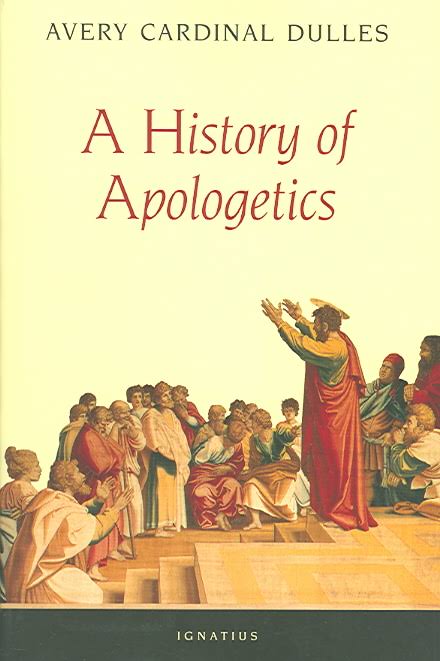
Paul goes from explaining the Jewish hardening of heart to warning the Gentile Christians he’s been called to reach to walk humbly before the Jews and God:
“13 But I am speaking to you who are Gentiles. Inasmuch then as I am an apostle of Gentiles, I magnify my ministry, 14 if somehow I might move to jealousy my fellow countrymen and save some of them. 15 For if their rejection is the reconciliation of the world, what will their acceptance be but life from the dead? 16 If the first piece of dough is holy, the lump is also; and if the root is holy, the branches are too.”
Here, the apostle seems to continue explaining the hardness of Israel’s heart with the goal to achieve Gentile salvation. He now glory’s in his ministry to the Gentiles wanting to magnify or placard its’ preciousness so that some Jews may be stirred by jealousy and come to salvation in Christ. The reason Paul thinks in this manner is because if their rejection (the Jews) or stupor lead to gentile salvation, which is glorious, then their acceptance (i.e., reconciliation to God) is gloriously being raised from the dead (metaphor for salvation).
That’s my understanding but now verse 16 is a bit tricky. The metaphor of bread and trees that follow seems to explain that the fruit or result of good bread is holy dough, and the reason that branches are holy is because the root also is. Paul seems to be telling his Gentile converts that they owe their relationship to Christ in large measure to what God did in and through Israel. He continues this argument:
“17 But if some of the branches were broken off, and you, being a wild olive, were grafted in among them and became partaker with them of the rich root of the olive tree, 18 do not be arrogant toward the branches; but if you are arrogant, remember that it is not you who supports the root, but the root supports you.”
It seems that the apostle is arguing for the respect that is rightly due to Jews because of God’s choice to use them as a light to the nations through which Messiah would arrive. Moreover, Paul here also appears to be accentuating that salvation is of the Jews (e.g., Jesus and the woman at the well) and as such a proper appreciation for them should in their lives.
Unfortunately, church history is riddled and loaded with Jews being mistreated by the Christian (Gentile) Church and much of it is based on the arrogance Paul here denounces. This arrogance as is often the case is based on ignorance, not knowledge. Why this attitude towards Jews? Human nature is such that often when one is privileged and another is not, the fortunate person brags and “rubs into another’s nose” that fact. Ill feelings often arise and alienation between people takes place. But such an attitude has no place in the lives of God’s redeemed people. Undoubtedly Gentiles must have been made to feel inferior to Jews who kept kosher food laws and celebrated the festivals.
Now Gentiles (and Paul knows it) are in a similar place being in Christ to think of themselves as better than their Jewish counterparts who are apparently “not chosen” which utterly misses Paul’s point. He continues and says:
“19 You will say then, “Branches were broken off so that I might be grafted in.” 20 Quite right, they were broken off for their unbelief, but you stand by your faith. Do not be conceited, but fear; 21 for if God did not spare the natural branches, He will not spare you, either.”
Unbelief, broken off, faith and conceited are terms that refer to what Paul has already explained in Romans. It’s because of unbelief that both Jew and Gentile alike are under God’s just wrath. Broken off seems to metaphorically refer to those relying on law keeping to attain righteousness. Faith contrarily is trusting in Christ’s righteousness alone to secure our peace before God. Conceited are those who boast in anything other than in Christ’s cross.
Paul is warning the Gentile believers to consider Israel’s past (the good and the bad) and walk humbly before God for if they don’t, God will deal with them as he did with the Jews. Contextually it seems that arrogance and conceit mark the Gentile believer (a bad sign) and may indeed prove they are not in fact part of the remnant (chosen by God) even as so many Jews proved not to be.
The reason I say this and don’t believe it’s talking about one losing their salvation is in light of God’s kindness and choice—which is utterly up to Him, never up to us. Paul continues:
“22 Behold then the kindness and severity of God; to those who fell, severity, but to you, God’s kindness, if you continue in His kindness; otherwise you also will be cut off. 23 And they also, if they do not continue in their unbelief, will be grafted in, for God is able to graft them in again.”
There’s no letting up in Paul, we demonstrate with our living whether or not we trust God in Christ. To continue in His kindness I take to mean that we trust in Christ’s work alone to secure our salvation, while unbelief is to rely on law-keeping to secure salvation—it’s the means to attain a righteousness that’s acceptable before God. Yet, recall that the purpose of the Law was to utterly show how sinful sin is by shining its’ light on it. The Law can never make anyone righteous before God because that’s not its’ design. Only Christ can make the unrighteous righteous.
I want to briefly mention the idea of bread and the root from this chapter. According to Jesus, the things written in the Old Testament were in one way or another pointing to Him. We know first that the manna God fed Israel in the wilderness was from heaven. Jesus said that he was the true bread which comes down from heaven, “I am the bread of life”. In this chapter I can see Paul playing off this Hebraic motif of bread and holiness, both of which bring life, both of which point to the resurrected Christ.
Another popular Old Testament motif is that of the “root”. The root sustains the “Tree of life” in the Garden of Eden, and the root is also used to speak of the coming Messiah’s Davidic lineage originating from the “root of Jesse”. The idea of root is tied to that which brings “life” originating from the Holy One Israel. The Holy One sent Messiah to rescue dead sinners from wrath. Both lump and root are holy for they come from the Holy One of and this holiness is required to see the LORD according to the Hebrews account. What’s the fruit of this holiness? Not pride, arrogance, or conceit (which is Paul’s warning to the Gentile believer) but humility and gratitude for God’s kindness. Paul proceeds:
“24 For if you were cut off from what is by nature a wild olive tree, and were grafted contrary to nature into a cultivated olive tree, how much more will these who are the natural branches be grafted into their own olive tree? 25 For I do not want you, brethren, to be uninformed of this mystery—so that you will not be wise in your own estimation—that a partial hardening has happened to Israel until the fullness of the Gentiles has come in; 26 and so all Israel will be saved; just as it is written, “The Deliverer will come from Zion, He will remove ungodliness from Jacob.” 27 “This is My covenant with them, When I take away their sins.” 28 From the standpoint of the gospel they are enemies for your sake, but from the standpoint of God’s choice they are beloved for the sake of the fathers; 29 for the gifts and the calling of God are irrevocable.”
I want to work backwards here with Paul’s argument to see if I can get at his point. First, I take “gifts” and “calling” of God here to mean those God has sovereignly chosen to rescue in accordance to His promise to Abraham that he would be the father of faith for a multitude (that’s a lot of souls). God has kept His word to Abraham through Christ’s redemptive work.
Second, the sad reality in Paul’s day was that Jews who rejected Christ as Messiah were enemies of the gospel, but why for “your sake”? Perhaps to make it clear to the Gentiles the kindness and severity of God, moreover to highlight God’s mercy toward them which should and does work holiness, humility and gratitude in the recipient of said favor, not pride, conceit or arrogance in the soul.
Third, Paul wants the Gentiles to see this in light of Israel’s partial hardening of heart. That is, this partial hardening has a purpose in God’s salvific design which is to bring into the fold every Gentile whom God has chosen from eternity past. The point seems to be so that Gentiles don’t think themselves more “special” than Israel and thus fall into conceit and pride. God has allotted a time to everything under heaven—this includes the time of Israel’s rescue for his names sake. I want to note here when the text says, “all Israel will be saved” contextually means those whom God has chosen, the remnant.
Fourth, Paul argues from the lesser to the greater. The lesser here is the “wild olive branch” which is the Gentile grafted into the greater “cultivated tree” which is Israel. The point here is that if Gentiles can be rescued while being strangers to the commonwealth of Israel, the fathers and the covenant, how much more does the same mercy obtain for the Jews? Paul continues emphasizing God’s mercy:
“30 For just as you once were disobedient to God, but now have been shown mercy because of their disobedience, 31 so these also now have been disobedient, that because of the mercy shown to you they also may now be shown mercy. 32 For God has shut up all in disobedience so that He may show mercy to all.”
Paul here hearkens back to Romans 1:18-20 where all are justly condemned for the purpose of showing His mercy to all. The “all” again contextually I take to mean the called, the chosen, the elect both Jew and Gentile alike, not every human being that’s ever lived (which is universalism: a view of salvation fraught with contradictions). And the jealousy motif earlier in verse (14) is connected to a means God uses in order to save both Jew and Gentile. This motif of jealousy is clear in the book of Acts where Paul after repeatedly being rejected by the Jews with his message determines only to minister to the Gentiles.
Paul buttons off this long argument with a doxology. Overwhelmed with God’s knowledge, power and wisdom, he declares what Job came to understand when confronted by the living God Himself:
“33 Oh, the depth of the riches both of the wisdom and knowledge of God! How unsearchable are His judgments and unfathomable His ways! 34 For who has known the mind of the Lord, or who became His counselor? 35 Or who has first given to Him that it might be paid back to him again? 36 For from Him and through Him and to Him are all things. To Him be the glory forever. Amen.”
God’s election, choice and mercy are grounded in His being which the creature can barely began figure out, only perhaps to scratch the surface. Because of this Paul can only declare the utter greatness of God comparable to nothing created, and as such, His ways supersede our abilities to understand. What God has however revealed, has made known to us, is that this Gospel is the fulfillment of what Isaiah 40:11 said: “Like a shepherd He will tend His flock, In His arm He will gather the lambs And carry them in His bosom; He will gently lead the nursing ewes.”
Paul has argued for and laid out the Gospel indicatives (facts) that in Christ alone both Jew and Gentile alike are rescued from God’s just wrath through the righteousness of Jesus which is imputed to the believer (it’s an alien righteousness which is from God and never ourselves). Now while this rescue is real it is nevertheless accompanied by a battle with sin which remains. And lest anyone think they are something when they are nothing, Paul finishes accentuating God’s mercy with the emphasis on His being and attributes of knowledge and wisdom perhaps to aid the reader from pride and conceit.
The remainder of Romans will now focus on the Gospel imperatives (commands) which is the obedience of faith Paul mentioned in (1:5-6).


 The sixteenth century saw primarily religious controversies within Christendom. Protestants and Catholic controversies were over the Mass, indulgences, purgatory, the sufficiency of Scripture, etc. The primary apologetical issue was the credibility of the Faith.
The sixteenth century saw primarily religious controversies within Christendom. Protestants and Catholic controversies were over the Mass, indulgences, purgatory, the sufficiency of Scripture, etc. The primary apologetical issue was the credibility of the Faith.




